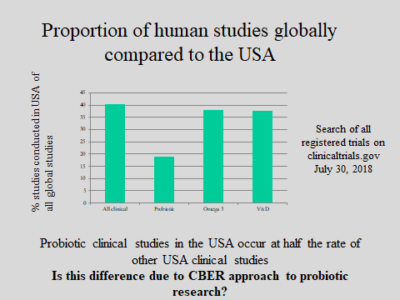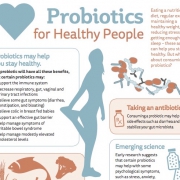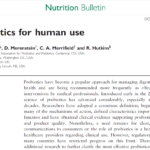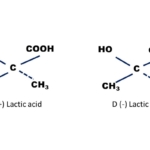CBER to hold public workshop on regulation of biologics
FDA’s Center for Biologics Evaluation and Research (CBER) is convening a public workshop Sept 17 in Rockville MD on the Science & Regulation of Live Microbiome-Based Products Used to Prevent, Treat, or Cure Diseases in Humans. It is now open for registration (free). See here for the program and here for additional info.
The evidence for efficacy, the safety and the regulatory framework for probiotics other live microbiome based products will be discussed. Prof. Dan Merenstein MD, ISAPP’s current Vice President, will speak on evidence, research and clinical use of probiotics for antibiotic associated diarrhea. Although the title suggests the meeting will focus on drugs, Dr. Bob Durkin from the Center for Food Safety and Applied Nutrition (CFSAN) of the FDA will speak on probiotic foods and dietary supplements.
This workshop is an opportunity for stakeholders to share with FDA and NIH concerns regarding the regulatory approach to probiotics adopted by the FDA. The path for development of probiotic drugs is reasonably clear. But the road to develop probiotic foods, supplements or microbiome-based dietary strategies to compensate for deficient microbiota is less so. These products are intended to improve gut function, nutritional status, immune status, metabolic properties and more. These are legal functions for foods and supplements, but the FDA doesn’t seem to see it that way.
The FDA has for the most part has approached probiotics as drugs (Sanders et al. 2016). Since probiotics are live microbes, and since CBER deals with drugs that are derived from living sources, CBER often oversees human research on probiotics. But there is no mechanism within CBER to oversee foods and supplements, and hence, human research on probiotics tends to be shunted into the investigational new drug (IND) process. But, the legal definitions of drugs and foods overlap – both can impact the structure/function of the human body and both can reduce the risk of disease. So conducting such research on probiotic foods – and not as part of the IND rubric – should be possible. Perhaps progress on this front can be achieved in the CBER workshop in September.
In a press announcement, FDA Commissioner Scott Gottlieb MD shared FDA perspective on probiotics and promoted this CBER conference. A couple of issues are noteworthy in this announcement by Gottlieb. First, the term ‘probiotic’ is used. Over the years, the FDA largely avoided use of this term, instead favoring the term live biotherapeutic product (LBP). But these terms are not synonymous. Probiotic is defined as a live microorganisms that, when administered in adequate amounts, confers a health benefit on the host (Hill et al. 2014). It spans multiple regulatory categories. A LBP is by definition a drug. The fact that Gottlieb used the term ‘probiotic’ may signal that he recognizes that not all probiotics are drugs. Second, Gottlieb’s announcement shows awareness that probiotics are legitimate components in foods and dietary supplements and states that the FDA is “committed to working with industry on efforts to provide information that can help consumers make more informed choices about these products.” This is a welcome statement to many researchers involved in probiotic foods and supplements in the United States. It suggests that the FDA is willing to look beyond probiotics as LBPs and develop regulatory approaches for research and claims appropriate to foods and supplements.
Innovation in this field, which has the potential to benefit many people globally, requires regulatory approaches that do not obstruct. Participation in this workshop may lead to improvements that both protect public safety and facilitate academic and industry researchers in the United States on the path to discovery.
Additional information:
Sanders ME, Shane AL, Merenstein DJ. Advancing Probiotic Research in Humans the United States: Challenges and strategies. Gut Microbes 7(2):97-100.
Warning letter from CBER: Dietary Supplements Containing Live Bacteria or Yeast in Immunocompromised Persons: Warning – Risk of Invasive Fungal Disease. Posted 12/09/2014.















